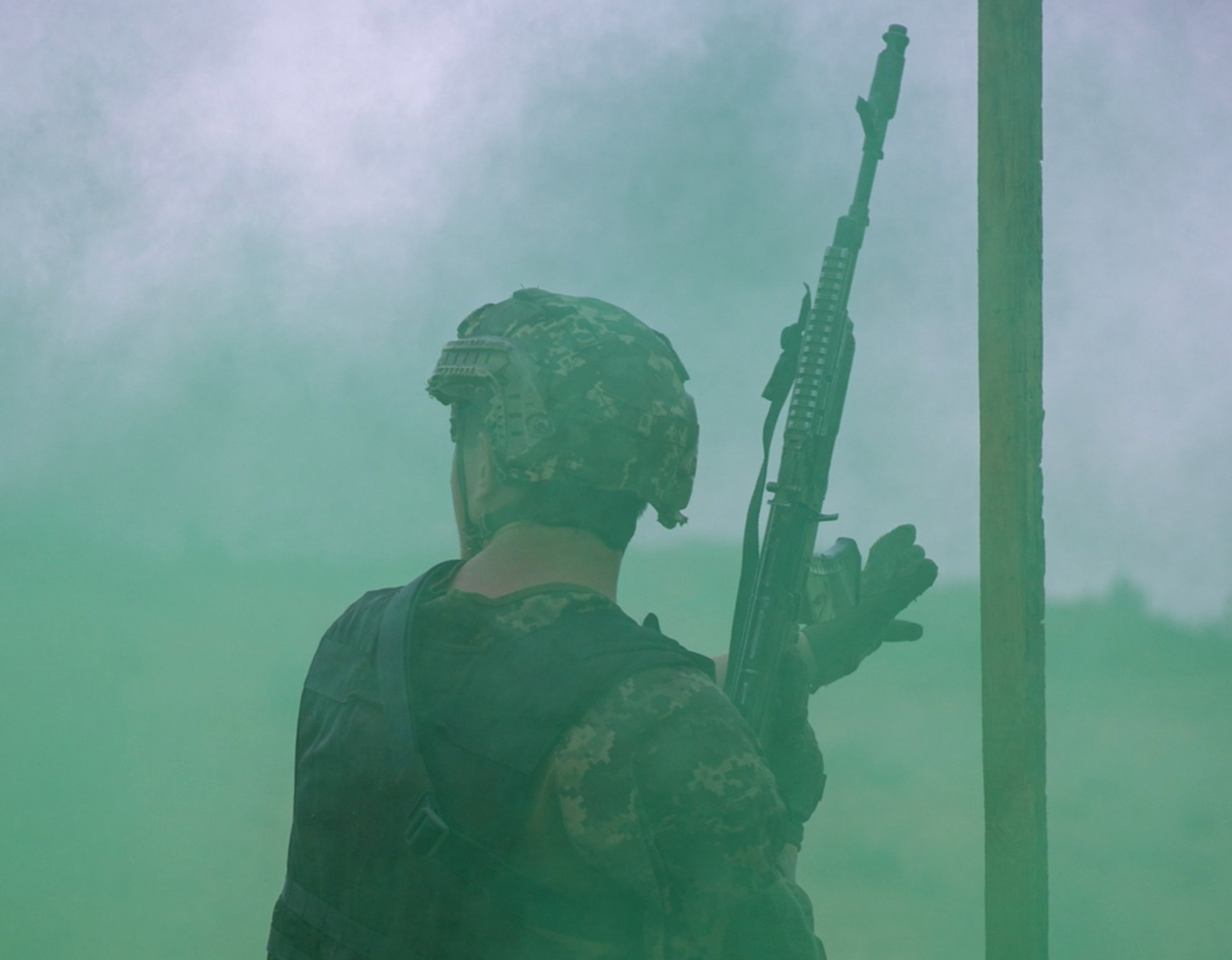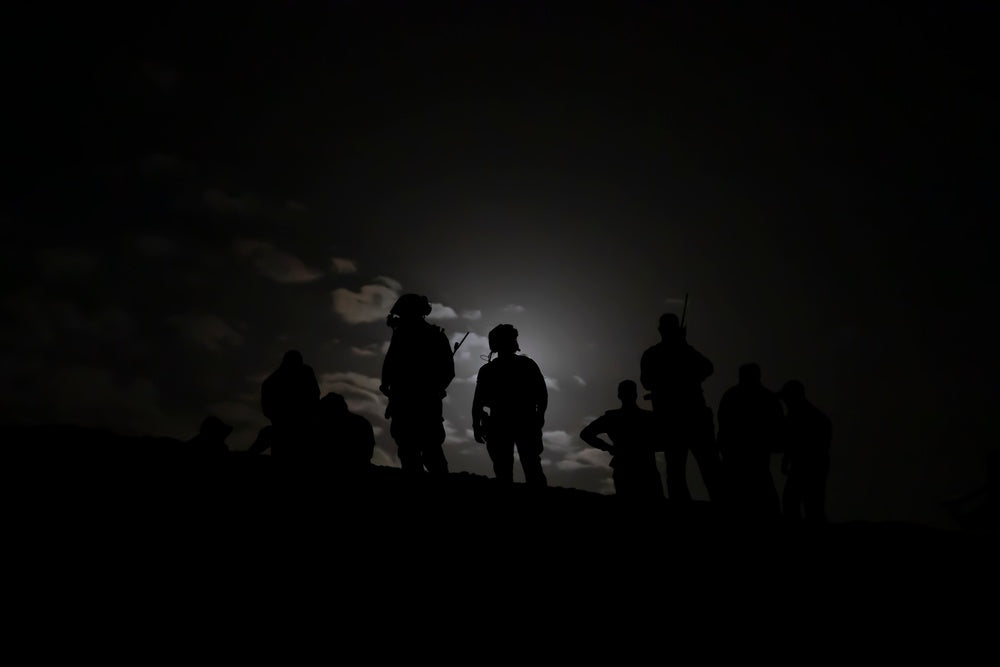
Ukraine parliament overhauls army draft rules to boost troop strength
PHOTO CAPTION: A Ukrainian Naval Infantry rifleman assaults an objective in a squad live-fire range during Exercise Sea Breeze 21 in an undisclosed location, July 5, 2021. (U.S. Marine Corps photo by Lance Cpl. Jacqueline Parsons via U.S. Defense Visual Information Distribution Service)
By Olena Harmash and Tom Balmforth
KYIV (Reuters) -Ukraine's parliament passed a bill on Thursday to overhaul how the armed forces draft civilians into the ranks after a general told the chamber that Russian forces outnumbered Kyiv's troops up to ten times on the battlefield in the east.
Two years into a war against Russia, a country with three times its population, Ukraine has been suffering setbacks on the battlefield. Tens of thousands of soldiers have been killed, many times more have been wounded and hundreds of thousands have now fought for two years with no respite.
Martial law lets draft officers call up men over 27 to fight, and a separate measure signed into law last week by President Volodymyr Zelenskiy made thousands more men susceptible by lowering that minimum age to 25.
But during the war there have been thousands of cases of draft dodging and in practice commanders have said they are not receiving enough troops.
The new measures should increase troop numbers by requiring men to update their draft data with the authorities, boosting payments to those who volunteer, and letting some convicts serve. It adds some new punishments for draft dodging, but stops short of severe measures that had prompted public opposition.
"Pass this law and the Ukrainian Armed Forces will not let down you or the Ukrainian people," General Yuriy Sodol, commander of the joint forces, told lawmakers.
"We are maintaining our defences with our last strength," he said as lawmakers stood up and applauded more than a dozen commanders who attended the session.
NO MIRACLES
Maksym Zhorin, a deputy commander of Ukraine's third assault brigade, said the law would not lead to "miracles" on the battlefield.
"Undoubtedly, it will bring a little more order and systematise (things) in general on the issue of mobilization," he said. "Personally, I would make it much tougher and also continue to reduce the conscription age."
Ukrainian troops achieved startling success in the war's first year, pushing Russian invaders from the capital and recapturing swathes of territory in the east and south. But since a major Ukrainian counter-offensive stalled last year, Russia has been pressing its advantage in manpower and equipment to wrest new ground in the east.
Military analysts say Ukraine's armed forces need to address acute manpower shortages, as well as a shortage of ammunition, worsened by U.S. Republicans who have blocked military aid from Washington, and potentially flagging support from some European allies.
"The enemy outnumbers us by 7-10 times, we lack manpower," said Sodol, who is commanding Kyiv's troops in the Kharkiv, Donetsk and Luhansk regions in eastern Ukraine.
Lawmaker Oleksandr Fedienko said the passage of the bill would send a "message to our partners that we are ready to retake our territory and we need weapons".
The bill passed with a majority of 283 votes, Yaroslav Zhelezniak, a lawmaker for the Holos party, wrote on the Telegram messaging app. It still requires President Volodymyr Zelenskiy's signature to become law.
Volodymyr Fesenko, a Kyiv-based political analyst, said the law could partially solve the mobilisation issue, but that it would depend on how it was implemented.
"Our experience shows that there are laws and there is practice, i.e. how the law will work. This law will solve part of the problems, but it will start working somewhere in the mid-May," he said.
The law gives Ukrainian men 60 days to update their personal data with the military authorities. Until now, draft offices had to rely on sometimes incomplete and old data.
An earlier proposal to set a time limit for mobilisation was abandoned, meaning wartime military service remains open-ended, a sensitive issue for those who have been fighting since the start of the war.
It took parliament several months to put the bill to a final vote this week, as politicians accused each other of drafting poorly-worded amendments and lacking the political will to approve unpopular changes. Over 4,000 amendments were submitted after the first reading in February.
"They made it as soft and confusing as possible. And months were lost," lawmaker Mariana Bezuhla wrote on Facebook.
(Additional reporting by Yuliia Dysa; Editing by Tom Balmforth, Christina Fincher, Peter Graff)









